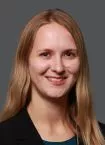- within Wealth Management, Law Practice Management and Coronavirus (COVID-19) topic(s)
On July 27, 2022, SEC Chair Gary Gensler gave remarks at the Center for Audit Quality entitled "Sarbanes-Oxley at 20: The Work Ahead."
Chair Gensler highlighted, among other things, impacts on auditing standards, accounting standards, and auditor independence. He noted that at the time of enactment of Sarbanes-Oxley in 2002, the new Public Company Accounting Oversight Board (PCAOB), tasked with setting enhanced auditing standards, was permitted to continue to use the old American Institute of Certified Public Accountants (AICPA) on an interim basis. Sarbanes-Oxley was trying to solve a conflict-of-interest problem: AICPA is a professional association, funded by auditing firms, which was writing rules for the firms funding it. Unlike AICPA, PCAOB is independently funded and is subject to SEC oversight. Sarbanes-Oxley similarly provided independent funding for the Financial Accounting Standards Board (FASB), the accounting standards-setter, which, prior to passage of the act, was also primarily industry-funded. Twenty years later, the PCAOB is still using most of the AICPA interim standards. Chair Gensler believes the PCAOB has been too slow in updating auditing standards. The PCAOB provided an update in May 2022, announcing that it plans to update almost all of the remaining interim standards.
On auditor independence, Chair Gensler mentioned that, initially, Sarbanes-Oxley had the effect of causing a number of firms to spin out their consulting businesses. He noted, however, that in the 20 years since, many firms have rebuilt their consulting businesses and PCAOB inspections continue to identify independence issues. As a result, Chair Gensler has asked the PCAOB to consider adding updates for auditor independence standards to its agenda and suggested that the SEC may need to re-evaluate its auditor independence rules as well.
Chair Gensler also commented on the impact of Sarbanes-Oxley on foreign issuers. He pointed out that more than 50 jurisdictions have complied with the requirement that PCAOB inspect audit firms of U.S.-listed companies based within their borders, with the exception of China. Under the Holding Foreign Companies Accountable Act of 2020 (HFCAA), recently affirmed by Congress, if the PCAOB cannot inspect registered public accounting firms located in foreign jurisdictions, then issuers using those firms for three consecutive years will face prohibitions on their securities trading in the United States. The SEC and PCAOB have been negotiating a Statement of Protocol with the Chinese authorities that would govern inspections of registered public accounting firms in China and Hong Kong, but an agreement on a Statement of Protocol has not yet been reached. Chair Gensler noted that this Statement of Protocol will need to be signed very soon to allow any inspections to be completed by year's end, which is especially important as Congress may accelerate the HFCAA's timeline from three years to two years. See the full text of Chair Gensler's remarks here.
Visit us at mayerbrown.com
Mayer Brown is a global legal services provider comprising legal practices that are separate entities (the "Mayer Brown Practices"). The Mayer Brown Practices are: Mayer Brown LLP and Mayer Brown Europe - Brussels LLP, both limited liability partnerships established in Illinois USA; Mayer Brown International LLP, a limited liability partnership incorporated in England and Wales (authorized and regulated by the Solicitors Regulation Authority and registered in England and Wales number OC 303359); Mayer Brown, a SELAS established in France; Mayer Brown JSM, a Hong Kong partnership and its associated entities in Asia; and Tauil & Chequer Advogados, a Brazilian law partnership with which Mayer Brown is associated. "Mayer Brown" and the Mayer Brown logo are the trademarks of the Mayer Brown Practices in their respective jurisdictions.
© Copyright 2020. The Mayer Brown Practices. All rights reserved.
This Mayer Brown article provides information and comments on legal issues and developments of interest. The foregoing is not a comprehensive treatment of the subject matter covered and is not intended to provide legal advice. Readers should seek specific legal advice before taking any action with respect to the matters discussed herein.

